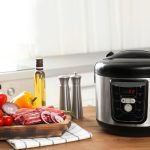Karaoke isn’t just for the pros—whether you’re belting out power ballads at home or entertaining at a party, the right wireless microphone can completely transform your experience. Choosing one, however, involves more than picking the most popular model online. Sound clarity, connection stability, and comfort all matter if you want a smooth and enjoyable karaoke session.
Here’s a full breakdown of what to look for when buying a wireless microphone for karaoke and how to choose the best one based on your needs, budget, and performance style.
Determine Where You’ll Use It
Before shopping, consider the primary setting for your karaoke sessions:
-
Home use: You may only need one or two mics with simple plug-and-play functionality.
-
Outdoor parties or events: Look for long-range connectivity and stronger signal stability.
-
Professional setups or venues: You’ll want more advanced features like multiple channels and interference resistance.
Knowing where and how you’ll use it helps narrow down your options significantly.
Choose Between UHF and VHF
Wireless microphones typically operate on either a VHF (Very High Frequency) or UHF (Ultra High Frequency) band.
-
VHF (174–216 MHz): More budget-friendly but prone to interference and shorter range.
-
UHF (470–698 MHz): More stable signal, better range, and less interference—ideal for crowded spaces or multi-mic setups.
UHF mics are generally more expensive but well worth it for higher-quality karaoke sessions.
Look at Microphone Type
There are two primary microphone types for karaoke:
-
Dynamic microphones: Durable, handle loud sounds well, and are best for live performances. They don’t require external power, making them beginner-friendly.
-
Condenser microphones: More sensitive and deliver richer sound, but they typically need phantom power and are more fragile—better for controlled environments.
For karaoke, dynamic wireless microphones are usually the best pick for durability and ease of use.
Check Audio Quality and Frequency Response
Audio quality makes or breaks a karaoke performance. Look for microphones with clear vocal pickup, minimal distortion, and smooth frequency response.
-
Frequency response range: A range of 50Hz to 15kHz is typical and adequate for vocal clarity.
-
Signal-to-noise ratio (SNR): Higher is better—aim for 90dB or more to reduce background noise.
-
Total harmonic distortion (THD): Should be under 1% for clean, undistorted vocals.
Try to listen to sample recordings or user reviews if you can’t test in person.
Check Battery Type and Life
Wireless microphones run on either rechargeable batteries or standard AA/AAA batteries.
-
Rechargeable options: Environmentally friendly and cost-effective over time.
-
Replaceable battery models: Easier to swap on the go, especially for long sessions.
Battery life should be at least 6–10 hours for extended karaoke nights. Some professional models even last up to 15 hours.
Look at Wireless Range
Wireless range varies depending on the microphone’s build and the environment:
-
For indoor/home use: A range of 30–50 feet is usually sufficient.
-
For larger spaces or outdoor settings: Look for models with 100–300 feet of range.
Obstacles like walls, furniture, and wireless routers can impact performance. Opt for models with antennas or enhanced signal technology for better stability.
Evaluate Connection Type and Compatibility
Make sure your wireless microphone connects easily to your karaoke setup.
-
Receiver output options: Look for 1/4-inch (6.35mm) or XLR outputs that match your speaker or amplifier.
-
Plug-and-play USB receivers: Ideal for laptops or smart TVs with karaoke software.
-
Bluetooth-enabled mics: Great for mobile devices but may suffer latency or dropouts compared to dedicated UHF systems.
Double-check that the mic and receiver are compatible with your existing audio gear.
Consider the Number of Microphones
Many wireless microphone sets come with one or two handheld units, but some offer four or more.
-
Single mics: Good for solo practice or home karaoke.
-
Dual mic sets: Perfect for duets or friendly competition.
-
Multi-mic systems (4+): Best for families, groups, or events.
If your setup involves multiple performers, choose a system that supports multi-channel operation to avoid signal clashes.
Build Quality and Comfort
You want a microphone that feels comfortable and well-balanced during use.
-
Material: Look for metal bodies over plastic for durability.
-
Weight: Shouldn’t be too heavy, especially for kids or long use.
-
Grip design: Textured or ergonomic designs help prevent slipping.
Bonus if the mic includes a foam windscreen to reduce popping or breath noise.
Extra Features That Add Value
Some wireless microphone systems offer features that enhance the overall experience:
-
Volume control on mic: Lets users adjust without going back to the mixer.
-
Echo or reverb effects: Adds fun, especially for casual karaoke parties.
-
LED indicators: Show battery or signal status.
-
Mute button: Useful between songs or during announcements.
These small additions can greatly improve usability and enjoyment.
Set Your Budget
Wireless microphones range from $30 to $300+ depending on brand, build, and features.
-
Budget options ($30–60): Great for beginners and small home setups.
-
Mid-range ($70–150): Offer better sound quality, battery life, and durability.
-
High-end models ($150+): Deliver professional sound, long-range, and additional controls.
Make sure you strike a balance between price and what you actually need—not every singer needs a stage-level mic.
Read Reviews and Compare Brands
Before you buy, read user feedback to see how the mic performs in real-world karaoke situations. Trusted brands like Shure, Sennheiser, Fifine, and Tonor often deliver reliable quality.
Look for consistent praise on:
-
Clear sound quality
-
Minimal interference
-
Battery longevity
-
Ease of pairing/setup
-
Sturdy construction
Be wary of mics with frequent dropouts or reports of static noise.
Final Thoughts
The perfect wireless microphone for karaoke depends on your setup, performance needs, and budget. Start by defining how and where you’ll use it, then look for a model with solid connectivity, clear sound, and dependable battery life. Whether you’re hosting weekend karaoke with friends or practicing your singing in private, the right mic brings your voice to life—without the wires getting in your way.


